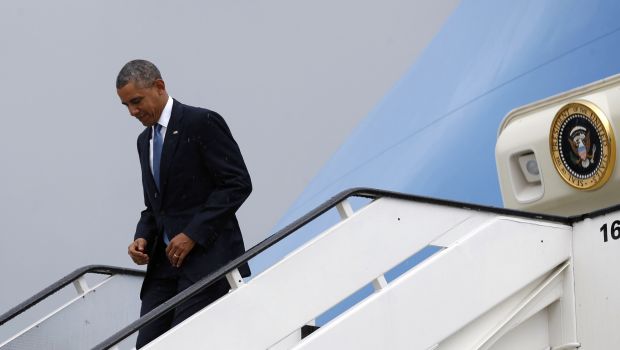Ever since the study of international politics began, commentators have compared the world order at any given time to an architectural structure designed by a leading power that acts as guarantor of its stability.
Throughout history, different leading powers have played that role: Assyrians, Babylonians, Persians, Macedonians and Romans in the ancient world and, in more recent times, the British.
After the Second World War, the US assumed that role. It led the designing and building of the United Nations, as it did the League of Nations after the First World War. The US was also the principal author of the Universal Declaration of Human Rights and the power behind a wide range of international organizations, including the International Monetary Fund and the World Bank, not to mention UNESCO and UNICEF. Thus, to a large extent, the international system has been sustained by American leadership and money.
That system, in turn, has developed laws and regulations that provide the framework for international discussion on almost every subject, from weights and measures to navigation rules for the seas, the skies and, more recently, space.
In the past seven decades, the US has sponsored or led the enactment of more than 15,000 international treaties, on every imaginable subject.
The collapse of the Soviet empire as the chief challenger, though at the same time partner, in the world order only reinforced the role of the US as guarantor.
The US fulfilled this mission on numerous occasions, largely by leading diplomatic efforts or using its economic and cultural power to generate stability. Those efforts included the Marshall Plan in Europe and the establishment of democratic systems in West Germany, Italy and Japan. Often, as in the Suez crisis, US diplomatic engagement was enough to contain a crisis. A decade before Suez, the US had used its diplomatic clout to stop Stalin from grabbing Greece and swallowing Iran’s northwestern region. In some cases, for example when the US led efforts to break the Soviet siege of Berlin, American power achieved its goal without firing a bullet. The US did not intervene in support of the uprisings in Poland, Hungary and Czechoslovakia because of the concessions granted to Moscow under the Yalta and Potsdam accords.
However, when necessary, the US did use military force to protect the world order. In the Korean Peninsula, the US led a UN force to prevent the Chinese from annexing South Korea to Kim Il-sung’s Communist fiefdom in the North. US Marines intervened in dozens of other places, including Jordan and Lebanon. More recently, we witnessed US interventions in Grenada, Panama, Kuwait, Afghanistan and Iraq.
Like it or not, it would be no exaggeration to speak of a world order “Made in the USA.” But what happens when the leading guarantor of an existing world order decides to abdicate?
That happened after the First World War, when the US—a power not designed to play the role of imperial guarantor—succumbed to one of its periodic fits of isolationism. The crash of the world order led to decades of chaos, naked land-grabbing by colonial powers, numerous regional wars and, eventually, the Second World War. The fact that the world at the time was not as “globalized” as it is today helped limit the effects of the crash.
A second period of US abdication came in the 1970s, during Jimmy Carter’s presidency. Exploiting Carter’s naïveté, opponents of the world order moved into high gear to undermine it. The disasters that happened while Carter was in the White House are too numerous to list in full.
These included a dramatic expansion of Soviet influence in Africa, the emergence of such bloodthirsty regimes as Mengistu’s in Ethiopia, the Apartheid regime’s decision to deprive millions of black South Africans of citizenship, the genocide organized by the Khmer Rouge in Cambodia, the annexation of Vietnamese territory by China, the mushrooming of Stalinist guerrillas backed by Cuba in Central America, the first oil price shock, the Khomeinist seizure of power in Iran, the terrorist attack on Mecca, the Soviet invasion of Afghanistan, and the decision by India and Pakistan to develop nuclear arsenals, to cite but a few.
To be sure, US weakness was not the sole reason behind those events. But it certainly contributed to the creation of an atmosphere of uncertainty in which opponents of world order believed they could chip at its edges with impunity.
Six years ago, as Barack Obama headed for victory in the US presidential election, some of us feared he would be an upmarket version of Jimmy Carter. Today, that fear has been realized. It is difficult to ascertain why Obama is behaving as he does. Is he motivated by a deep resentment of America inculcated in him in his youth? Or is he handicapped by lack of experience? Maybe he genuinely believes that by abdicating leadership, the US will win love instead of respect.
Whatever the reason, Obama’s failures on a range of issues, from global environment to trade talks with the European Union to containing Russian ambitions in Europe and Chinese ambitions in the Far East, have already dented the world order. I have not even mentioned his other failures—on the Middle East peace process, Iran’s nuclear ambitions, the Syrian tragedy, and the effective prolongation of the war in Afghanistan by fixing a date for US retreat.
It took a decade to repair part of the damage that Carter’s ineptitude did to the international order. Repairing the damage that Obama is doing might take even longer.
